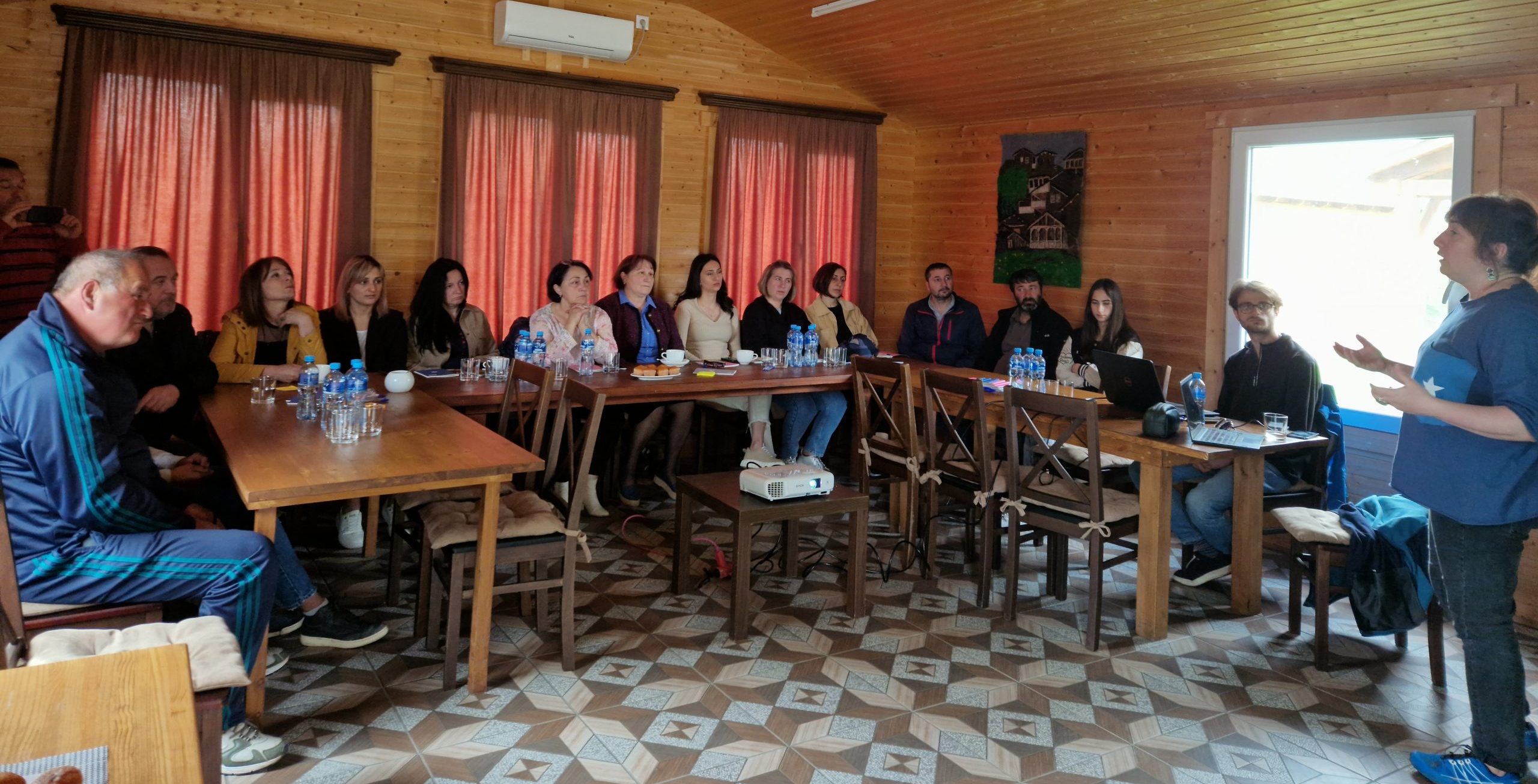News Insights on the Needs of Georgia’s Business Associations
In recent years, Georgia’s association sector has experienced significant growth, with over a hundred active associations now operating within the country. The business associations continue to address the many needs of their members, while also offering essential services for business development. They have played a substantial role in shaping Georgia’s economic landscape, bridging various gaps, and advocating for the interests of the private sector. However, these support services that can be crucial for small and medium-sized enterprises (SMEs) are less available in rural areas than larger urban centers. Regional business associations and support organizations find themselves underrepresented, compared to national organizations that focus primarily on larger cities.
To delve deeper into these issues, CIPE collaborated with PMO Business Consulting, a Tbilisi-based management consultancy, to conduct a national survey. This survey drew 520 responses from businesses and entrepreneurs across the country to identify the obstacles hindering collaboration between regional sectoral associations, business support organizations, and SMEs. It assessed the activities and challenges faced by associations and business support organizations in the region, discerned the requirements of small and medium-sized businesses in accessing support services, and detailed the barriers impeding collaboration among these parties.

SMEs are the lifeblood of the Georgian economy, constituting an impressive 89% of active business entities as of January 2023, according to data from the National Statistics Office of Georgia. These enterprises, 42% of them located in the capital city, play a vital role in job creation, employing 431,600 individuals (59% of the business sector’s workforce) and contributing to just over 37% of the sector’s total turnover (GEL66.8 billion). Outside the capital city, the Imereti and Adjara regions are centers of activity in cities such as Kutaisi and Batumi. In contrast, the northern, mountainous regions of Racha-Lechkhumi and Kvemo Svaneti have the fewest business entities registered.
Key Findings and the Rural-Urban Divide
Fostering the growth of SMEs stands as a key economic policy focus for Georgia. This commitment is clearly outlined in the country’s strategic and policy documents, including the Association Agreement between Georgia and the European Union. The CIPE-PMO survey adds detail to the rural-urban divide in small-scale commerce, including the following findings:
- The study results highlight a disparity in support services for SMEs between rural areas and urban centers. SMEs in rural regions predominantly rely on sectoral associations, local civil society organizations, and business support organizations. This discrepancy stems from the lower level of overall economic activity in rural areas, leading to a concentration of support in cities. Rural associations struggle to deliver services consistently, and often depend on donor funding, creating uncertainty over long-term sustainability.
- Access to financial resources remains a significant challenge for regional SMEs, despite existing state and donor programs. Over the past three years, 91% of enterprises outside the cities had not received any grants. Among those that did receive grants, state initiatives were the primary source of financial support for SMEs, followed by donor and non-governmental organization aid. The primary obstacle preventing SMEs from benefiting from grant opportunities lies in their limited awareness of available financing options and insufficient resources, hindering their ability to effectively compete for government and donor funding. Awareness of these tools is one of the benefits of having active and thriving business associations.
- In addition to financial support, SMEs place a high priority on consulting services to address their specific organizational, human resources, and business development needs. Areas requiring guidance include production expansion, expertise in digital sales channels, identifying market entry partners, and implementing production standards. Among survey respondents, 5% do not refer to other associations or unions for business-related consultations and try to solve problems themselves. Alongside financial assistance, there is a pressing demand for qualified consultants and knowledge sharing. This further illustrates the need for comprehensive support strategies.
- Women entrepreneurs encounter challenges in accessing existing bank loan programs due to collateral requirements. Among women-led organizations,a predominant sector of focus is wholesale and retail, comprising more than 33% of the overall distribution, closely trailed by the agricultural and hospitality sectors. It is worth noting that women exhibit a pronounced inclination towards leadership roles in health and social care services. However, across all other sectors, male managers outnumber their female counterparts. Gender-segregated data reveals that the needs and challenges faced by small and medium-sized businesses are largely similar, with the primary difference being accessibility to While state and donor programs prioritize women’s participation, female entrepreneurs encounter difficulties securing loans often because they lack collateral compared to their male counterparts.
- Lastly, there is a limited awareness of the roles of business associations and support services that hinders collaboration between SMEs and service providers. Research indicates that 65% of small businesses and 70% of medium-sized businesses in the region have not sought support from business associations. This lack of engagement is due to SME representatives lacking comprehensive information about the benefits of partnering with sector-specific associations and support organizations. Among survey respondents, 44% had not considered becoming members of a business association.
The research findings suggest that within rural regions, the development of business associations and support services is still in its early stages, not fully realizing their potential for fostering collaboration among the private sector, associations, and service providers. These insights and recommendations will play a pivotal role in shaping CIPE’s forthcoming programs in Georgia, enabling development of customized assistance strategies to effectively address the distinct needs of both business organizations and the private sector.
Published Date: December 22, 2023
